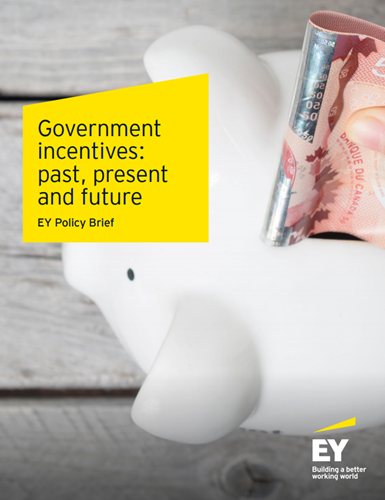Amazon hit the headlines in 2017 when it was reported that the company hoped to pick up a US$1 billion of benefits as it scouted a location for its second North American HQ. Some 200 cities in the USA, Canada and Mexico hoped to woo Jeff Bezos and Co. Press coverage around the possible deal—valued at US$5 billion with 50,000 jobs attached—pushed the sometimes murky world of economic development onto our news feeds.
Incentives are part of the landscape of investment strategy. Love them or loathe them, they are often a decisive factor in corporate decision-making. Cities and regions have much to play with when it comes to enticing investors with discretionary dollars and much to gain by luring big employers onto their patch. Economic development agencies have at their disposal a mix of grants and subsidies, preferential borrowings and credit, tax rebates and other nonfinancial incentives which might include access to clusters of supply chain partners. But those incentives are rarely transparent, and the number of competing programmes can be vast—individual states in the USA may have more than 30 programmes in play at once. Who knows what, or where, the best deal is?
Finding reliable data that can be aggregated to make meaningful comparisons is tough and time consuming. Even in countries such as Singapore—renowned for its transparency, good corporate governance, investment-friendly policies and general un-murkiness—a clear view of incentives can be hard to come by.
As in most areas of life and business, data deficits lead to ill-informed decisions.
All parties stand to benefit when there’s knowledge and data available to enlighten their negotiations and ultimate decisions. Combined with the more obvious hard infrastructure offering, location benefits such as access to talent pools and institutions, incentives are another important piece of the puzzle. For investors, incentives can shave off substantial chunks of capital expenditure and open doors to other business benefits such as access to technology clusters, skills development and supplier partnerships.
A host of leading professional service providers advise companies and regions. Clients, whether buy-side investing companies or cities and regions on the sell-side seeking investments, expect their partner agencies to have access to up-to-date and reliable intelligence. Without it the advisors lack the tools to make meaningful comparisons. Their ability to act in clients’ best interests is compromised.
This lack of readily available data, which adds friction to investment cycles and compromises decisions, motivated Wavteq to invest in its IncentivesFlow platform.
For the past 10 years, IncentivesFlow has tracked hundreds of deals each week, reporting on 113 countries and recording more than US$220 billion of incentives.
Many professional advisors, site selectors and companies, use it as part of their tool kit and economic development organisations use it to benchmark their incentive programmes against those of their competitors.
Ernst & Young interrogates batches of historical data by region and identifies themes. Its 2020 policy brief on the Canadian government’s use of incentives is a case in point. Built on Wavteq’s data, it offers a detailed analysis of Canada’s priorities by sector and by region. That takes a lot of legwork out of the task for Canadian companies and foreign investors. It also means regions know what they’re competing against, and how they can differentiate themselves.
EY - Policy Brief 2020
Few deals have anything like the cachet or price tag—or publicity—of an Amazon HQ. Most go unreported in anything other than the local press. But they can have a profound bearing on the opportunities and prosperity of local citizens.
Transparency and visibility allow negotiating parties to see where the real deal is to be done. It underpins the holy grail of a win-win situation. Without this intelligence, all parties end up shadow boxing and risk making decisions that they may find later to be flawed, or not the best on offer.
Wavteq IncentivesFlow is the only global deal database tracking real-time financial incentives awarded to companies for foreign and domestic investment projects
